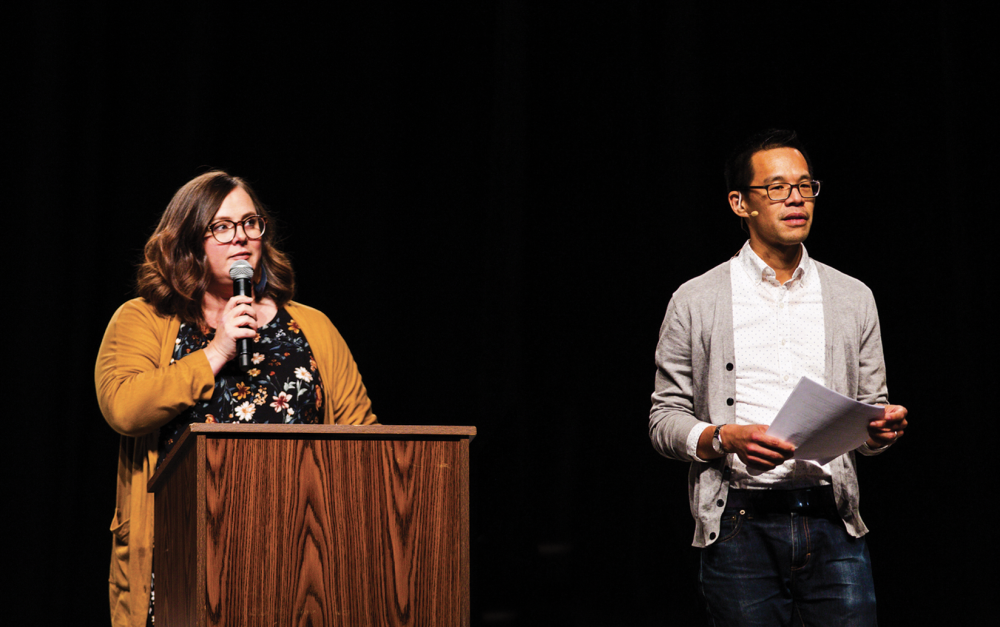Companions in the wilderness
Evolving Faith’s Sarah Bessey and Jeff Chu believe that a person’s deconstruction can’t just be for them.

Sarah Bessey and Jeff Chu are coleaders of Evolving Faith, an organization Bessey founded with Rachel Held Evans in 2018. The ministry consists of an annual conference, a podcast, and a new online community. Bessey lives in Calgary and is author of several books, including Jesus Feminist. Chu lives in Grand Rapids, Michigan, is author of Does Jesus Really Love Me?, and serves as teacher-in-residence at Crosspointe Church in Cary, North Carolina.
How would you describe Evolving Faith to someone who’s never heard of it?
Sarah Bessey: When Rachel Held Evans and I began to talk about putting together a weekend retreat in 2016 or so, we were looking for something that we wished we had had during the season of life now called “deconstruction.” It goes by a lot of names. We tend to use the metaphor of a wilderness.




